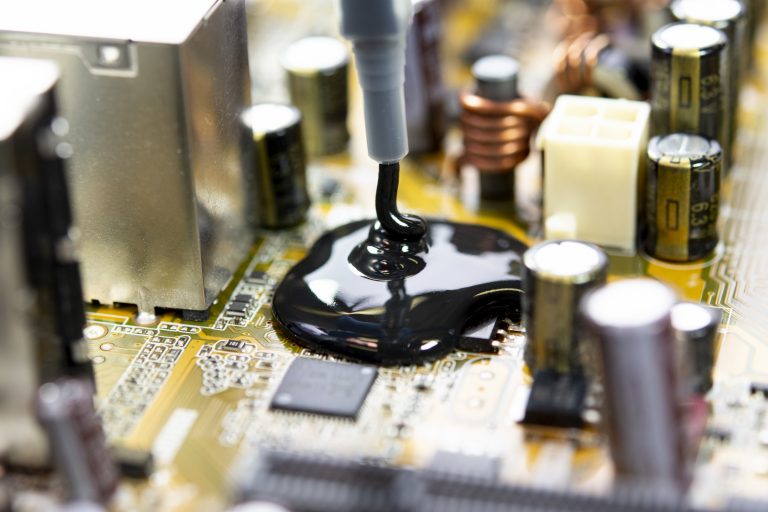Protection from elements including vibration, shock, heat dissipation, moisture, and corrosive substances is necessary for electronic assemblies. The process of "potting" can be used to provide this protection. When an electronic assembly is potted, a compound that permanently adds protection to the assembly is poured into it.
There are a variety of Electrical Potting Compounds available, each with a selection of viscosities, cure conditions, and other features. Urethane, silicone, and epoxy are all compounds used extensively.
Everything you need to know about epoxy potting compounds will be reviewed in this blog post.
Choosing Epoxy Potting Compounds
Electronics assemblies require potting solutions because they offer dependable, all-encompassing protection from adverse environmental factors. Epoxy potting compounds and materials offer the highest level of mechanical strength, excellent moisture resistance, and performance in high-temperature environs.
Rigidity, modulus, and tensile strength are all well-developed characteristics of epoxy potting compounds. They are the ideal choice for potting electrical parts like switches or transformers due to their outstanding dielectric characteristics.
Potting materials are primarily long-term protective solutions utilized in electronics applications. They are essential for the long-term preservation of electronic assemblies and offer a number of benefits, including improved thermal management properties, and abrasion resistance. Other significant benefits of epoxy electrical potting compounds are:
- Chemical defense
- Prevention of corrosion
- Crack prevention
- Electrical insulation
- Improved mechanical toughness
- Protection of the environment
- Dispersion of heat
- Thermal shock and vibration resistance
Outstanding moisture resistance of epoxy potting compounds is a great benefit, which makes them particularly ideal for outdoor applications. Additionally, they offer great chemical, high-temperature and adhesive resistance. These qualities have made them very popular in the consumer electronics, automotive, and aerospace industries.
The following are some basic uses for epoxy potting compounds:
- Oil and gas sensor circuit protection
- IP protection
- PCB protection in commercial transportation
- Durableness for LED drivers
- Potting of transmitter components in deep-sea telecommunication cables
Many grades of epoxy compounds are well suited for high-volume production applications for protecting delicate components due to their low viscosity and self-leveling properties. Epoxy electrical potting compounds can be manufactured in a variety of grades to meet the demands of various applications.
These compound types have varying working times and other features, as well as viscosities that range from very low to high. Epoxy resins, for instance, can be designed to be thermally conductive, flame-resistant, and curable at low or high temperatures.
In A Nutshell
Epoxy potting compounds can be customized to fit the specific requirements of a variety of applications and offer a high level of protection for electronic assemblies. These specially formulated potting compounds are used by a wide range of industries to offer complete, long-term protection for delicate electronic components. Some of the fields where epoxy potting compounds are being used heavily are the consumer electronics, automotive, and aerospace industries.
The best electrical epoxy encapsulant potting compound offers superior defense against water damage and chemical, mechanical, thermal, or electrical shock. The best electrical epoxy products have a wide range of unique properties, including flame resistance, thermal conductivity, optical clarity, and dimensional stability.


No comments yet